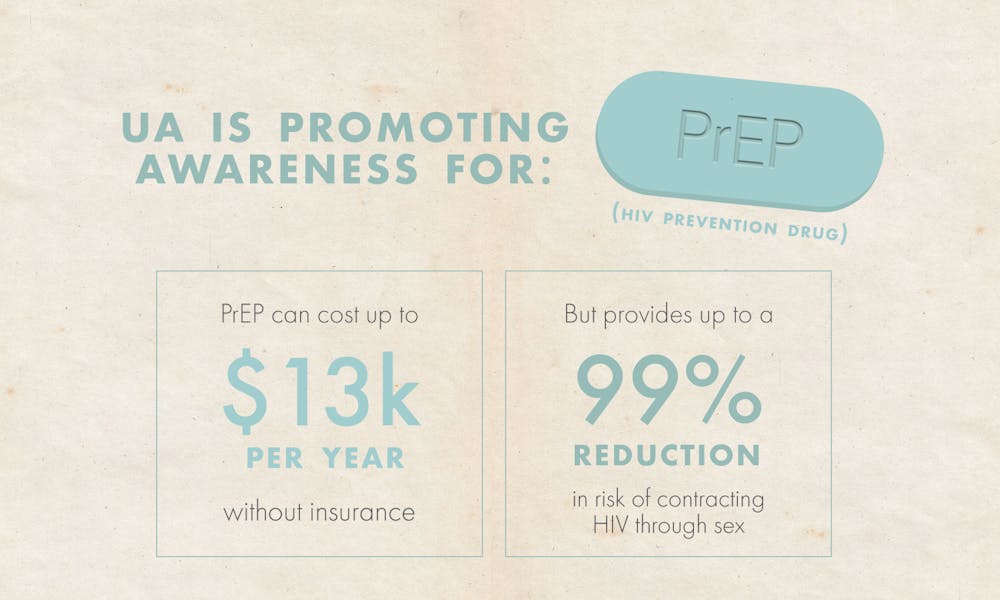An Undergraduate Assembly representative is working to raise awareness about pre-exposure prophylaxis, an HIV-prevention drug, and its availability through Student Health Services.
College first-year and UA representative David Garnick said his project's focus is to make sure students know that they can get PrEP for free through the Penn Student Insurance Plan, or at a reduced cost through SHS. He added that he hopes to create information sessions at the LGBT Center and Campus Health and put posters around campus to educate students on what the pill is and how to obtain it.
PrEP is a pill that prevents HIV from establishing a permanent infection, and reduces the risk of contracting HIV through sex by 99% when taken daily. Garnick said one of the main barriers to PrEP is the cost. The drug can cost up to $13,000 a year without insurance.
“People just don't know about it, and then people also can't afford it,” Garnick said.
SHS Medical Director Vanessa Stoloff said the Penn Student Insurance Plan covers PrEP. Director of Campus Health Ashlee Halbritter said for students seeking access to PrEP with private insurance plans that do not fully cover the pill, SHS and Campus Health work with local public health agencies such as the Mazzoni Center to secure coupons and rebates to lower the cost of PrEP.
Halbritter said, however, that PrEP will be covered by Affordable Care Act compliant plans in July 2020 after the United States Preventive Services Task Force gave the drug an "A" rating in June 2019. The Affordable Care Act requires insurers to cover services that have a rating of "A" or "B" in the current recommendations of the USPSTF.

“There’s only so much we can do with the expenses and the relationships that we have in terms of right bonus coverage or coupons or rebates that the company could give,” Stoloff said. “Once that's a moot point, there really shouldn't be any barriers.”
Because all private insurance plans will begin covering the drug in July, Halbritter said that SHS and Campus Health plan to primarily target the campaign for the fall. Garnick said, however, that he hopes to start raising awareness for the HIV-prevention drug this semester.
Halbritter said Campus Health and Garnick plan to put posters in college houses and common spaces where students living off-campus and graduate students can see them.
“From a public health perspective, we’re very interested in making sure that students know that this is a resource available,” Halbritter said.
College-age students made up 80% of new youth HIV diagnoses in 2016. According to an analysis of an October 2019 report from the Centers for Disease Control and Prevention, Philadelphia ranks third nationwide for highest STD rates.
“I really want to find a way for us to have different programming surrounding PrEP so we can get students much more engaged with the idea of taking this in order for our generation to fully eradicate HIV and AIDS,” Garnick said.









